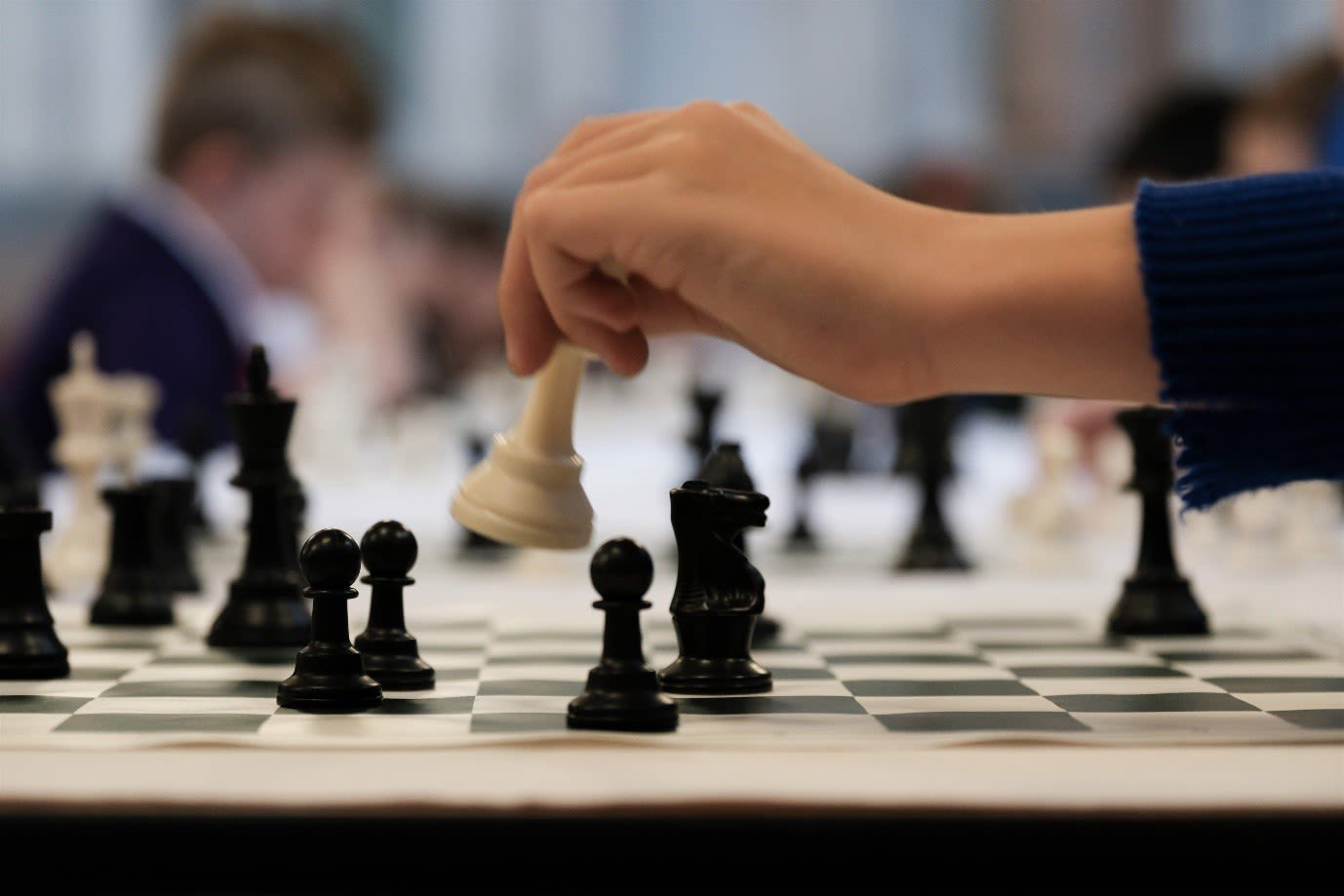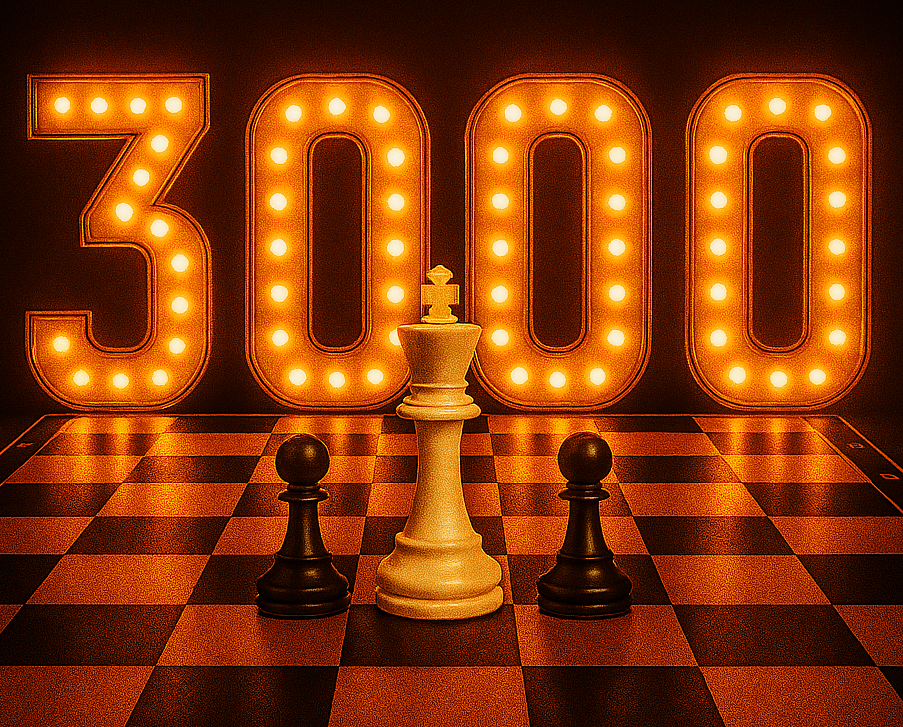
Special Educational Needs
Chess is a game that is truly inclusive. It knows no boundaries to race, gender, age, disability, or faith. It is also a game which often appeals to children with special educational needs, and one in which they may excel. For those who may struggle with some of the core academic subjects offered at school, success at chess can build confidence and self-esteem. A growing body of research and our own extensive experience over the last ten years suggests that chess can have a positive effect on outcomes for SEN children, improving behaviour, concentration, self-esteem, and combatting social exclusion.
Why chess?
Chess is a low-cost activity that has been shown to have positive educational and social benefits to all children. Playing chess can develop problem solving ability, pattern recognition, and logical reasoning, skills essential to mathematics. For the wider curriculum, chess helps improve concentration skills, critical thinking, and creativity. Chess helps children understand the importance of making positive decisions, of taking responsibility for those decisions and for their consequences. It demonstrates to children that hard work can be rewarded by success. Importantly, it develops resilience and the ability to bounce back from setbacks.
Equally significant are the social benefits brought about by children learning a shared activity that can be enjoyed with friends and all generations of their families. Taught correctly, chess can help develop sporting behaviour, winning graciously and accepting defeat.
A number of recent academic studies have focused on the effect playing chess can have on children with special educational needs. While the number of studies that have been undertaken in this area is limited and the sample sizes are relatively small, the research supports the notion that learning chess in a classroom setting can lead to improvements in concentration and behaviour among children with a range of additional needs. There is also evidence that studying chess may have a positive influence on the achievement of these children in mathematics, and in numeracy and quantitative reasoning in particular.
Attention Deficit Hyperactivity Disorder (ADHD)
Playing chess requires concentration skills, the ability to develop and follow a plan, and to evaluate the consequences of one’s own actions. A 2014 study (article L, here) examined the effect of playing regular chess on a group of children, aged 11-13, with ADHD. The children received fortnightly chess lessons for a period of 8 months. Measurements were taken, before and after the chess programme, of the children’s ability to concentrate, their listening skills, and their behaviour. The study was limited in size but showed a significant increase in the length of time for which children could focus on a particular task before disruptive behaviour began, suggesting an improvement in self-regulation. Concentration skills, as measured by Conner’s Teachers Rating Scale, were also significantly higher at the end of the chess course.
A second study in Spain (article D) found that learning chess was an effective treatment for children with ADHD, especially for those with high IQs. The efficacy of this programme exceeded that of some commonly used clinical treatments, without any of the negative side-effects.
Autistic Spectrum Disorder (ASD)
Chess is a game that can have a strong appeal to autistic children. It has clearly defined rules, takes place in a quiet, low-stimulation environment, and requires no physical contact. Those with the ability to focus intensely on a logical activity can excel. Indeed, many strong chess players display traits commonly associated with those diagnosed with ASD. For these children, who may find school life difficult, success at chess can help build confidence. Playing chess offers an opportunity for social interaction, for understanding your opponent’s ideas and point of view. When teaching chess we emphasise this side of the game, rather than solely focusing on the competitive element.
There has been very little rigorous research on the possible benefits of chess for children with ASD. However, the anecdotal evidence is strongly supportive of the idea that the game can provide an environment in which these children will thrive. You can read 10 reasons why your autistic child should learn chess here. https://autisticnotweird.com/10-reasons-for-chess/
Learning difficulties
A 2008 study attempted to evaluate the impact of learning chess on the outcomes in mathematics of children with learning disabilities. Children in four schools in Germany were assigned a weekly chess session to replace their regular mathematics lesson for one academic year. The research showed a significant impact on calculation abilities for simple addition and counting tasks. Children who received the chess lessons improved considerably more in these areas than their peers in the control group. The researchers suggested that the informal handing of mathematical concepts may be a more effective method of learning for children with learning difficulties than more formal teaching. This informal approach is inherent of chess – it is the first step in the evaluation of any chess position. The schools decided to extend the concept of chess lessons to large cohorts of children with and without additional needs.
How can CSC help your school?
CSC is a nationwide charity founded in 2009 with the aim of ensuring the social and educational benefits of chess are accessible to all. Our core activity, and central to the mission of the charity, is the work we do with children of all ages under the CSC Schools’ Programme.
Our innovative approach is to offer schools chess lessons during curriculum time as well as traditional lunchtime or after-school chess clubs. This ensures all children have access to the benefits that chess can bring. Our lessons assume no prior knowledge of chess and are suitable for children of all abilities. CSC tutors are experienced in working with children with special educational needs in mainstream settings. The charity has also had success working with groups of children in specialist schools.
Through our Schools’ Programme we can offer:
Chess lessons. CSC can deliver or support chess lessons at your school. Our lessons are typically 45-60 minutes long and follow our CSC Curriculum: 30 sessions taking students from complete beginners to proficient chess players over the course of a year. Each lesson consists of a range of activities: formal teaching, written exercises, and mini-games. They normally take place on the school premises but, where Covid-19 restrictions prevent this, can also be provided online, through remote delivery or via ChessKid.
Chess clubs. CSC can also help establish a chess club at your school, either at lunchtime or after school. We can do this in conjunction with lessons or on a stand-alone basis.
Chess tutors. CSC has over 100 tutors working in schools across the country every week. All our tutors have excellent subject knowledge and have been trained to deliver the CSC Curriculum in schools. Our tutors have enhanced DBS certificates and undergo regular safeguarding training.
Staff training. CSC holds regular training days. These cover our curriculum, techniques for teaching chess, and ideas for running a school club. The course is designed for teachers and teaching assistants who either want to support a CSC tutor, or to run their own chess activities at their school.
Equipment and resources. CSC will provide chess sets and boards for any state school interested in establishing lessons or a club as part of their timetable.
Other chess opportunities. Schools in our programme are given priority booking to the Schools’ Festival at the London Chess Classic held each December at Olympia, London. CSC schools also have the opportunity take part in annual tournaments organised by the charity in each area in which we are active. These take place in the summer term.
ChessKid. CSC has significant discounts available for Gold ChessKid accounts. Schools can use these to help children develop their chess skills in their own time and at their own pace. CSC can provide a tutor to review progress, run tournaments and competitions, and make regular lesson recommendations.
Our programme can be tailored to the specific needs of the children at your school. We have experience of working with children in a wide range of settings.
Lorrie Shulman writes about what her chess club is doing for those in her school with special needs.
"The students (aged 16 - 24) in the School of Personalised learning have some form of learning difficulty or disability, SEMH or behavioural need. I am delighted that the group doubled in size after Christmas when students were allowed to change options! All students from last term continued and they enlisted a lot of their friends to join them. We have a visually impaired student for whom we have purchased a chess set from the RNIB, which has been fantastic to see him truly included in his peers’ activities. The principal of the college dropped into the class the other day and was extremely impressed with what was going on.
Your resources have been very useful. For some students we have used some of the simpler games such as Fox and Hounds and the Pawn game. It has been fantastic to see the students engage and thoroughly enjoy the game. We have Learning Support Staff learning the game alongside the students so the students love the challenge of beating staff!"
Further reading and research
“Impact of chess training o mathematics performance and concentration ability of children with learning disabilities”, M. Scholz et al., International Journal of Special Education, Volume 23, Number 3, 2008.
“Our move: using chess to improve math achievement for students who receive special education services”, D.C. Barrett and W.W. Fish, International Journal of Special Education, Volume 26, Number 3, 2011.
“Chess and autism: a bridge between two worlds”, K. van Delft, lecture given to the 2nd London Chess Conference (available here: https://londonchessconference.com/pres/), 2014.
“Chess and Special Needs Education”, R. James, Chesskids blog, http://www.chesskids.org.uk/special.htm.
“The effect of playing chess on the concentration of ADHD students in the 2nd cycle”, B.M.N. EdDaou and S.I. Ed-Shamieh, Procedia – Social and Behavioural Sciences, 192, 2015




